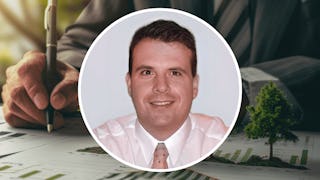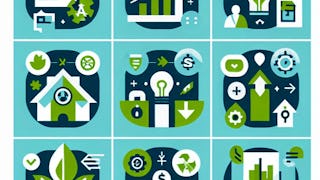Extreme weather events, wars, famine and environmental destruction are just a few of the wicked problems faced by humanity.
That’s why in 2015 the United Nations adopted the 2030 Agenda for Sustainable Development. This agenda includes 17 Sustainable Development Goals (SDGs) that target the big challenges such as how to eliminate poverty, how to protect the environment and how to bring about peace. Every member state committed to achieving these goals by 2030. What can businesses do to counter climate change and create a sustainable business culture? Why is this relevant for business anyway? Explore how business can contribute to a better future for people AND the planet without giving up profits. This course has been developed by Rotterdam School of Management at Erasmus University (RSM). It focuses on the role of businesses in achieving the SDGs. You will gain insights from leaders of international companies and academics in business and management who will guide you through the issue of how businesses can contribute to the SDGs. The course received a 'MOOC Award of Excellence' by the Sustainable Development Solutions Network and the SDG Academy in September 2019 (https://www.unsdsn.org/2019-sdsn-awards-of-excellence-winners-announced) After completing this course you will: • know what the SDGs are, why they are important and how each individual can be an agent for positive change in the world; • understand the role of business in the transition to sustainable development to create a prosperous future for all; • be able to identify interconnectedness of the SDGs and the challenges behind solving them; • know how management insights can contribute to the SDGs; • be able to evaluate the effectiveness of current business strategies in contributing to the SDGs; • develop a positive, critical, aware and courageous attitude towards the SDGs. The course consists of seven units, each focusing on several aspects of sustainable development and taking one week to complete. You will study by watching videos, reading literature and by engaging in other activities such as weekly challenges. Assignments will consist of quizzes, discussions with your fellow students, and challenges to implement in your daily life. Are you ready to find out how you can be an agent for positive change? Register now!





































